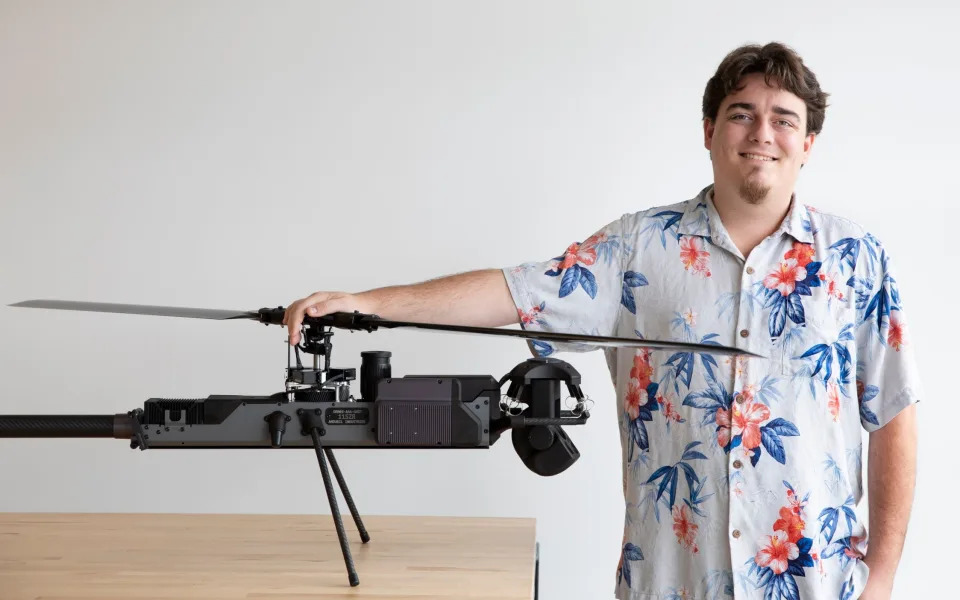Howard Mustoe
Mon, 1 January 2024

Palmer Luckey sold Oculus, his virtual reality headset startup, to Facebook in 2014 for more than $2bn (£1.6bn) - Dan Tuffs
A defence company founded by US entrepreneur Palmer Luckey, who sold his virtual reality business to Facebook at the age of 21, will double its UK presence in the next two years as it expects a boom in defence technology.
Anduril develops anti-drone technology, detection equipment and maritime security technology, all centred around its Lattice artificial intelligence-powered software.
The company recently developed a vertically launched jet engine powered drone named Roadrunner which is designed to intercept aircraft and other drones and gather intelligence.
“We have a strong belief that the UK is rife with engineering in defence and aerospace talent. We plan to continue to hire and grow in that market for the foreseeable future,” says Gregory Kausner, Head of Global Defence. “Our focus is on autonomous systems. Robots capable of acting independently based on conditions set by humans with humans.”

Anduril develops anti-drone technology, detection equipment and maritime security technology - Anduril
The company was founded in 2017 and entered the UK in 2019 as its first international market. It plans to double its 40-strong UK workforce to 80 and “plans to design, engineer and to manufacture products in the UK for the UK”, Mr Kausner said, opening test ranges and offices.
Founder Palmer Luckey sold Oculus, his virtual reality headset startup to Facebook in 2014 for more than $2bn (£1.6bn) and personally made an estimated $700m. He was let go in 2016, reportedly for making donations to an anti-Hillary Clinton group.
The following year, he set up Anduril, named after a legendary sword in JRR Tolkien’s Lord of The Rings books, which is meant to bring modern technology onto the battlefield.
The UK defence sector has seen a wave of investment and expansion since Russia’s attack on Ukraine.
Relatively new technologies to defence, like drones, has meant militaries are trying to adapt quickly to counter them.
Ukraine has proved a productive testing ground for drones, which are used for surveillance and as a cheap, accurate means of delivering attacks on tanks, buildings and personnel.
Before Russia’s invasion, the focus of most weapons makers was to outperform enemy hardware, building equipment that was increasingly fast, stealthy or deadly.
Military drones however, can cost as little as $10,000 apiece, while adapted civilian models can come in under $1,000
Development of domestic jet-powered drones in the UK is also gaining pace. BAE Systems began developing a jet-powered stealth drone called Taranis about a decade ago.
QinetiQ, the defence technology firm spun out of the Ministry of Defence nearly two decades ago, is developing a disposable drone with top British arms contractor BAE Systems called Jackdaw.
Based on the design of the Banshee target, which looks like a mini warplane and is made to be shot out of the sky during missile tests, the jet-powered Jackdaw will help lure rockets away from nearby jets, snoop on targets and jam radio transmissions. This can all be achieved more cheaply than a manned plane.
No comments:
Post a Comment